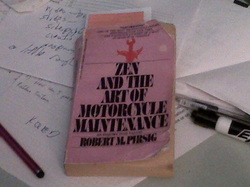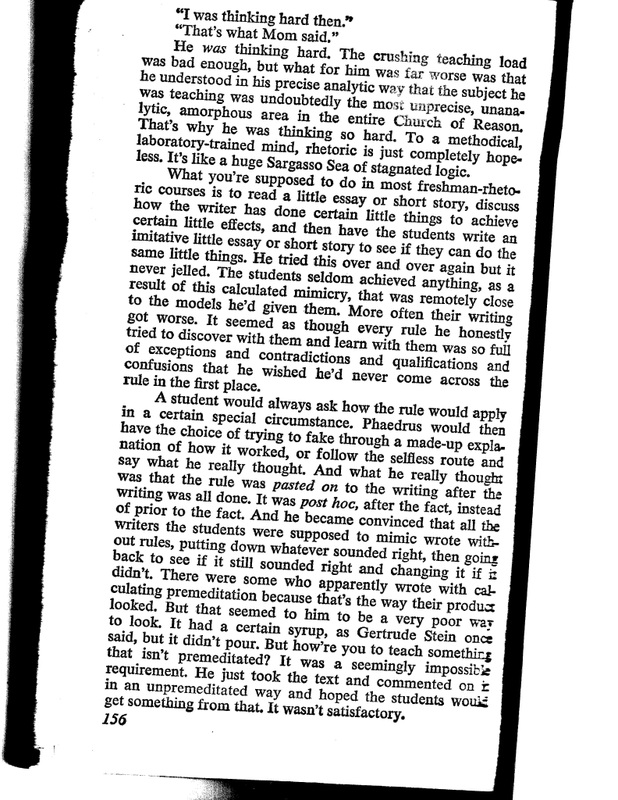
What you’re supposed to do in most freshman-rhetoric courses is to read a little essay or short story, discuss how the writer has done certain little things to achieve certain little effects, and then have the students write an imitative little essay or short story to see if they can do the same little things. He tried this over and over again but it never jelled. The students seldom achieved anything, as a result of this calculated mimicry, that was remotely close to the model he’d given them. More often their writing got worse. It seemed as if every rule he honestly tried to discover with them was so full of exceptions and contradictions and qualifications and confusions that he wished he’d never come across the rule in the first place…A student would always ask how the rule would apply in a certain special circumstance. Phaedrus would then have the choice of trying to fake through a made-up explanation of how it worked, or follow the selfless route and say what he really thought. And what he really thought was that the rule was pasted on to work the writing was all done. It was post hoc, after the fact, instead of prior to the fact. And he became convinced that all the writers the students were supposed to mimic wrote without rules, putting down whatever sounded right, then going back to see if it sounded right, and changing it if it didn’t. There were some who apparently wrote with calculation, because that the way their product looked. But that seemed to him to be a very poor way to look. It had certain syrup, as Gertrude Stein once said, but it didn’t pour. But how’re you supposed to teach something that’s not premeditated? It was a seemingly impossible requirement. He just took the text and commented on it in an unpremeditated way and hoped the students would get something from that. It wasn’t satisfactory (156).
Another thing that depressed him was prescriptive rhetoric, which had supposedly been done away with but was still around. This was the old slap-on-the-fingers-if your-modifiers-were-caught-dangling stuff. Correct spelling, correct punctuation, correct grammar. Hundreds of itsy-bitsy rules for itsy-bitsy people. No one could remember all that stuff and concentrate on what he was trying to write about. It was all table manners, not derived from any sense of kindness or decency or humanity, but originally from an egotistic desire to look like gentlemen and ladies…In Montana, however, it didn’t have this effect at all. It identified one, instead, as a stuck-up Eastern ass (162).



 RSS Feed
RSS Feed
